BANZAI7 NEWS--WSJ reports, despite their tough talk about clamping down on pay, banks and securities firms are using other financial perks to ease the toll on employees.
Bank of America Corp. and Citigroup Inc. are doling out shares that employees can sell within months—much sooner than normally allowed. Other giant banks, including Goldman Sachs Group Inc. and Royal Bank of Scotland Group PLC, let certain employees borrow money to relieve personal cash crunches. And some U.K. banks have considered raising base, or cash salaries—funds that won't be subject to the country's new 50% tax on bonuses.
Such moves are a contrast to concessions recently made by large financial firms in hopes of defusing public anger, and political retaliation, over the comeback of sky-high compensation. Many banks and securities firms are paying bonuses with a bigger percentage of stock. Goldman, for example, sharply reined in pay and benefits during the fourth quarter. This week, the firm told partners that 60% of their 2009 bonuses will be in the form of restricted stock.
The new pay culture is squeezing bankers with hefty mortgage payments and private-school tuition bills—and has prompted some companies to find ways to assist cash-squeezed employees.
"I know it sounds ridiculous to Main Street, but it's a real hardship," says Gary Goldsteal, who runs, a financial-services job-search firm in New York. "So firms are trying to help out any way they can."
Cheap loans are the most popular form of financial aid for traders and investment bankers. Gustavo Dolefino, a senior managing director at recruiting firm Secretive Solutions, says sweatheart loans "are happening all over" Wall Street. They include a type of bridge loan made to tide over employees whose fixed ponziesque operating expenses outstrip available cash resources.
Such loans aren't new, experts say, but they are becoming more common. Unlike normal borrowers, bankers and traders sometimes can get below-market rates on non-recourse loans or face lighter collateral requirements, industry officials say.
A rise in favorable employee loans could fuel new resentment over the pay culture at financial companies. Many banks remain tight about lending cheap Federal money to ordinary consumers and small businesses. Loan balances at U.S. banks shrank by 2.8% in last year's third quarter, the largest decline in at least 25 years, according to the Federal Deposit Insurance Corp.
WB7: Readers of this Blog should not be surprised.
Subscribe to:
Post Comments (Atom)














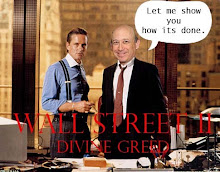




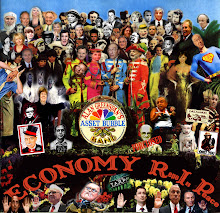









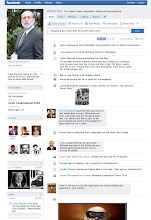
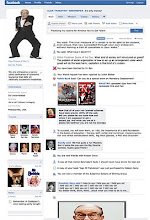
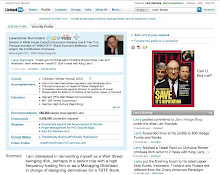




.jpg)












No comments:
Post a Comment